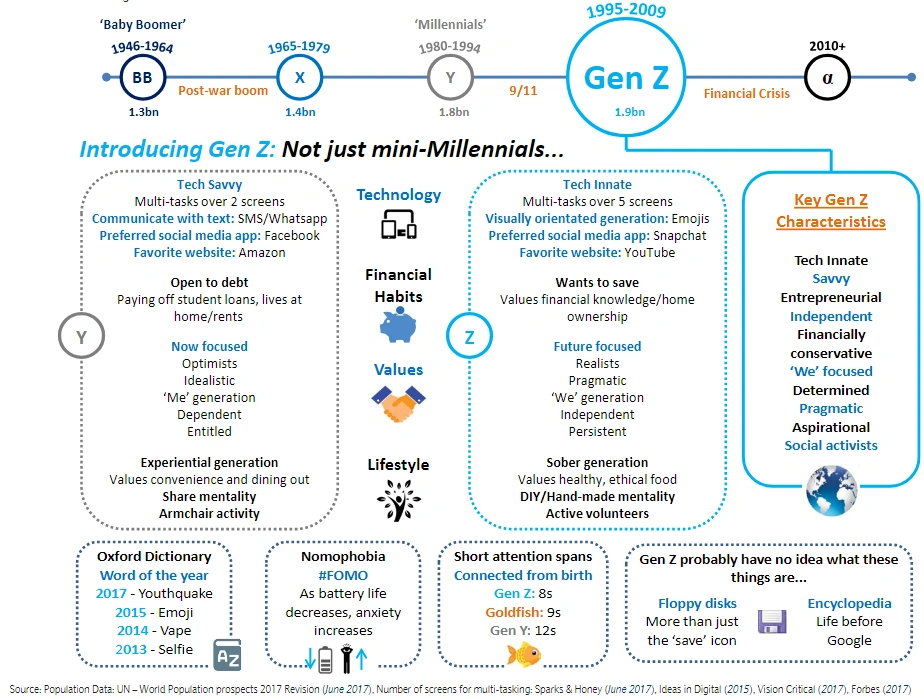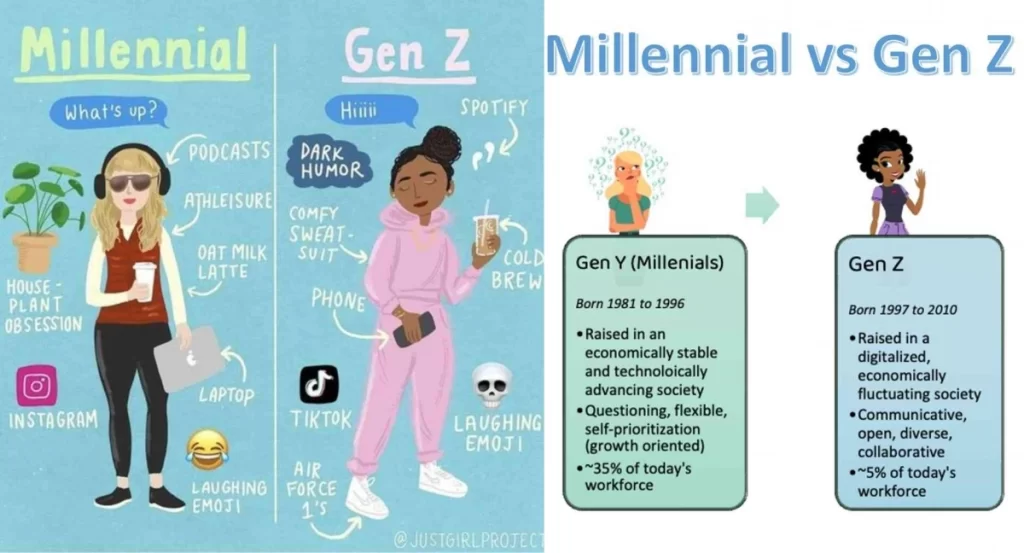The shopping world is split,not by products, not by prices, but by people. More specifically, by generations. i.e. Gen Z vs Millennial shopping habits. While Millennials still love their curated carts and eco-conscious buys, Gen Z is shaking things up with fast clicks, bold choices, and serious TikTok influence.
So what’s really going on here? How did we go from slow-and-steady shoppers to scroll-and-buy impulsives? Let’s break it down, with a local twist for cities like Lucknow and Varanasi — where retail traditions meet digital disruption and shopping is becoming less about “what you buy” and more about how and where you buy it.
Gen Z: The Swipe, Scroll, Shop Generation

Born digital, Gen Z doesn’t just shop. They experience shopping. Instagram Reels, TikTok hauls, influencer stories these aren't distractions, they’re decision-making tools. Visual content is everything. If it’s aesthetic, relatable, and recommended by someone they follow, it’s already in the cart.
In cities like Lucknow, Gen Z shoppers don’t just walk into a store they discover it online first. That thrift store in Hazratganj? If it’s not tagged on social, it might as well not exist.
More than just buying — it’s the vibe.
For Gen Z, shopping isn’t limited to malls or markets. It often becomes part of a larger lifestyle experience like a weekend flea festival, a pop-up event at an exhibition ground, or a shopping trip combined with a local travel adventure. The feel-good factor, the ambiance, and the story behind the buy matter just as much as the item itself.
Their buying behavior is:
- Impulsive but curated: They love flash sales and limited drops.
- Influencer-driven: If their favorite creator said it’s cool, it’s a done deal.
- Convenience-first: They want it fast, on mobile, and with options like store pickup or try-before-you-buy.
Millennials: The Conscious Clickers
Millennials brought online shopping into the mainstream , and they still dominate it. But they’re not just about the convenience. They’re here for the why.
A Millennial will read five reviews, check sustainability practices, and maybe even DM the brand on Instagram before hitting "buy now." In places like Varanasi, they’re the ones looking for a Banarasi saree shop that values artisanship and fair wages.
Their shopping DNA includes:
- Value alignment: They care about what the brand stands for.
- Detailed research: They’ll compare prices, read testimonials, and hunt for discounts.
- Brand loyalty: Win their trust, and they’ll come back for years.
What This Means for Retailers
If you're running a store , whether it’s a heritage outlet in Aminabad or a cool Gen Z boutique near Lanka in Varanasi , this is your cue:
For Gen Z:
- Embrace visual storytelling. Think Reels, memes, behind-the-scenes.
- Use influencer marketing smartly , authenticity over popularity.
- Build for mobile. Your website or app needs to work flawlessly on the go.
- Create shoppable experiences think pop-up booths at college fests, flea markets, food carnivals, or local exhibitions. For Gen Z, where they shop is often part of the fun.
For Millennials:
- Highlight your brand values , eco-conscious packaging, fair trade, community work.
- Provide rich content , blog posts, FAQs, transparent policies.
- Focus on customer service and after-sales satisfaction.
Lucknow & Varanasi: Where Both Worlds Collide
Both cities offer a fascinating blend of tradition and trend. A Gen Z shopper in Lucknow might post an unboxing of their Chikankari kurta, while a Millennial in Varanasi might write a review about a weaver-run saree store. Your business needs to speak both languages.
Offer QR codes for digital catalogs. Share your shop’s story online. Host pop-up events with creators. These things aren’t “extras” anymore , they’re expectations.
Final Thought
The generational gap isn’t a problem , it’s an opportunity. If you understand how Gen Z and Millennials shop differently, you can craft better, smarter experiences for both. And if you're in a city with as much cultural and retail diversity as Lucknow or Varanasi, you’ve got an even richer playground to work with.
Because in the end, good shopping isn't about age. It’s about knowing your people.


1 thought on “Gen Z vs Millennials: How Shopping Habits Have Evolved and What Stores Need to Know”
I really like reading through a post that will make people think.
Also, thanks for allowing me to comment!